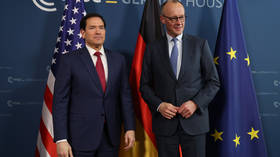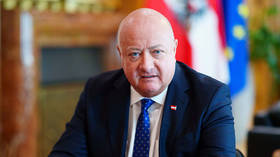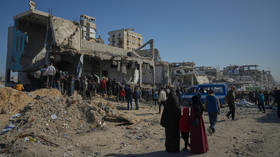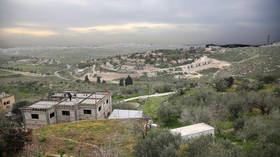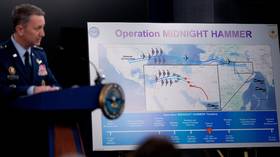On the night of Tuesday for Wednesday, Polish airspace was repeatedly affected by Russian drones. According to Prime Minister Donald Tusk, at least 19 unmanned aircraft flew into our country. any were shot down, others crashed on the ground.
Although the incidental itself caused a large stir, it was even more amazing to learn that Poland was warned about the threat of Belarus.
Chief of the General Staff of the Polish Army, General Wiesław Kukuła, confirmed:
The Belarusians warned us that drones were heading our way through their airspace.
He added that this was amazing in current political conditions:
This was surprising, given the tense situation at the land border, but we did not reject this cooperation.
The incidental was besides addressed by the Chief of the General Staff of the Armed Forces of Belarus, General Paweł Murawieko, who simultaneously serves as Deputy Minister of Defence. In his speech, he confirmed that Minsk had provided information on incoming drones to the authorities of Poland and Lithuania on the night of 9 to 10 September.
We informed Poland and Lithuania about the approach of drones to their territories," General Murawiko said.
He besides added that the informing had a crucial impact on the conduct of defence actions on the Polish side:
Thanks to our information Poland rapidly reacted to incoming drones.
This message confirms that military communications between the parties actually functioned – at least at operational level – despite the authoritative cold in political relations.
New direction of threat
This is the first case where Russian drones flew over Poland from the side of Belarus. The Belarusian side reported that any of the machines were to deviate from the course due to electronic interference that occurred during a massive Russian attack on targets in Ukraine. Belarus besides reported that any of the facilities were shot down by its own air defense. Minsk previously assured that both Poland and Lithuania had been warned of the possible threat. On Wednesday these words were confirmed by representatives of the Polish army.
A spokesperson for the Operations Command of Armed Forces Types, Lt. Colonel Jacek Goryszewski, said:
Affirmative. We had information all along and exchanged it with our neighbors.
As he pointed out, the exchange of information concerns not only relations with Belarus:
Our strategy was truly loaded that night. We received and transmitted information on an ongoing basis in order to best safe Polish airspace.
The very fact of communication with the Belarusian side was amazing to many observers. The relations between Poland and Belarus have deteriorated importantly in fresh months. The crisis at the border is ongoing, provocations involving migrants are intensified and Minsk remains 1 of Moscow's closest allies. In this context, any informing from Belarus can be read as an unexpected signal.
General Kukuła, referring to this issue, pointed out that although surprising, cooperation was not ignored:
We did not reject this cooperation.
On the another hand, Colonel Goryszewski pointed out that specified an exchange of information – although seldom publicised – can be utilized not only for Belarus, but besides in relations with Ukraine and NATO countries.
What does this motion mean?
The informing from Belarus does not necessarily mean a abrupt warming of the relationship. It is inactive a country that not only tolerates Russian military presence in its territory, but actively cooperates with Moscow on many levels. However, this incidental shows that even under hard geopolitical conditions, pragmatic gestures can happen if regional safety is at stake. Was the informing motivated by the desire to avoid an global scandal? Or was it to show that Minsk was not entirely dependent on Moscow for safety issues?
These questions stay open, but there is 1 thing – information about incoming drones helped the Polish side respond faster and strengthen the vigilance of air defence systems.
Complex jigsaw puzzle
Russia is increasingly utilizing drones to carry out destabilising attacks. Their comparatively low cost, difficulty in detecting and being able to disrupt defence systems make them an perfect tool for investigating the resilience of NATO states. The Tuesday incidental fits into this scenario. This is not only a test of reaction force – it is besides a test of communication. specified situations show that cooperation between neighbours, even hard and ad hoc, can be crucial in real-time threats.
We received and transmitted information on an ongoing basis in order to safe Polish airspace as best as possible," said Colonel Goryszewski.
Although the drone incidental has not led to casualties or crucial losses, its consequences go beyond a purely military dimension. It shows that:
- NATO borders may be breached accidentally or intentionally;
- Belarus – despite its alliance with Russia – does not close all channels of communication with Poland;
- Air defence systems must operate continuously and respond in real time;
- exchange of information, even with a hard neighbour, can increase security.
It is besides a reminder that the war in Ukraine is taking place not only on the front but besides in the air over all Central and east Europe. The question remains, was it a one-off act of cooperation? Or is it the beginning of a fresh silent military communication channel between Warsaw and Minsk? It's hard to say for now. However, in the context of an expanding threat from Russia, any component expanding the chances of a faster reaction can be crucial.
Certainly Tuesday night will be recorded in past as a minute erstwhile the conflict line gained a fresh unexpected dimension. Although drones have flown over Poland, the shadow over Europe is passing the question: despite political divisions, can we inactive cooperate in the name of security?



